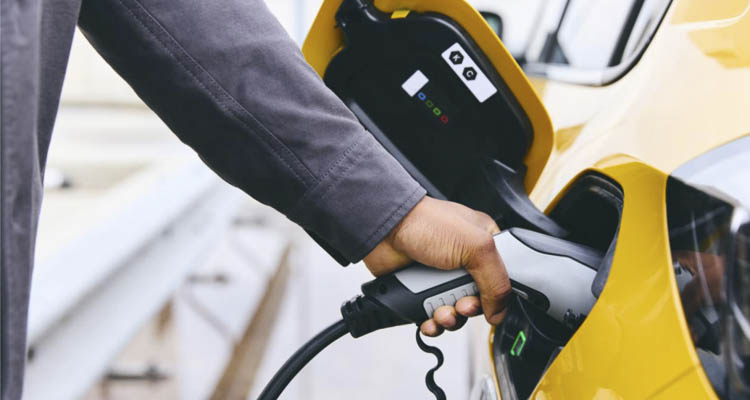
This week, Gov. Jay Inslee announced $45 million in subsidies through a Department of Commerce grant program for families deemed “low-income” to purchase an EV
TJ Martinell
The Center Square Washington
One strategy for state officials looking to transition Washington’s transportation sector to electric vehicles is by subsidizing them with taxpayer dollars.
This week, Gov. Jay Inslee announced $45 million in subsidies through a Department of Commerce grant program for families deemed “low-income” to purchase an EV.
“Washingtonians really get it when it comes to electric vehicles,” Inslee said at a Wednesday news conference in Tukwila.
The program provides up to $9,000 for families to lease an EV, or $5,000 to purchase one. The grant program allows them to purchase either new or used EVs. The funding would be available to those who make 300% of the federal poverty level or less.
Inslee described it as a way to “democratize EVs. We’re not stopping here. We want to help the entire ecosystem, if you will, of electrifying our transportation fleet. We expect there are going to be a lot of folks that are going to be enjoying this benefit.”
Subsidies has been one recommendation made in the Electric Vehicle Coordinating Council’s transportation electrification strategy, in which residents would receive public dollars in exchange for giving up a fossil fuel vehicle to purchase an EV.
The council has recently noted that EV sales, while increasing, aren’t as a high as they could be due to a lack of charging ports around the state. The state is looking to double the number of public charging ports through revenue from the Climate Commitment Act, which makes up 84% of all funding for the state’s EV investments.
Speaking at Wednesday’s press conference, Department of Commerce Director Mike Fong described the grant program as a “first in the nation” by allowing people to lease, rather than buy, an EV.
“We are always excited in Washington to be the first in the nation at innovating, particularly in equity and on climate change, and we are going to be able to do that with this program,” he said.
The program has drawn criticism, including from Washington Policy Center Environmental Director Todd Myers. In a blog post, he argued that the subsidies won’t help reduce carbon emissions and is a waste of taxpayer money better spent on other environmental priorities, such as salmon recovery.
“This is one more example of how wasteful and ineffective Washington’s climate policy is,” he wrote. “It also reveals the disingenuousness of claiming that climate change is an ‘existential crisis’ while wasting tens of millions of dollars on projects that do nothing to address that crisis.”
The grant funds will be available to qualifying residents in August.
This report was first published by The Center Square Washington.
Also read:
- Busy pavement season ahead on Vancouver streetsThe city of Vancouver is set to repave and preserve 76 lane miles across 20 neighborhoods in summer 2025, with ADA upgrades and community notices throughout.
- State representative: Expect sticker shock when Interstate Bridge project officials reveal price, tolling plansAt a town hall in Battle Ground, Rep. John Ley warned of major cost increases and tolling burdens tied to the Interstate Bridge replacement project.
- Opinion: Washington state lawmakers increase the cost of driving – againBob Pishue of Mountain States Policy Center argues that new vehicle and fuel taxes in Washington will raise driving costs while diverting funds away from roads.
- Overnight full closure of I-5 near Woodland for bridge inspection, May 6WSDOT will fully close southbound I-5 near Woodland overnight on Tuesday, May 6 for a bridge inspection using a chain drag test.
- Opinion: Do we still need TriMet?John A. Charles Jr. of the Cascade Policy Institute argues that TriMet should halt expansion plans and prepare for major service reductions in response to falling ridership and rising costs.










“Washingtonians really get it when it comes to electric vehicles,” Inslee said…” “In the shorts”, he said, under his breath.